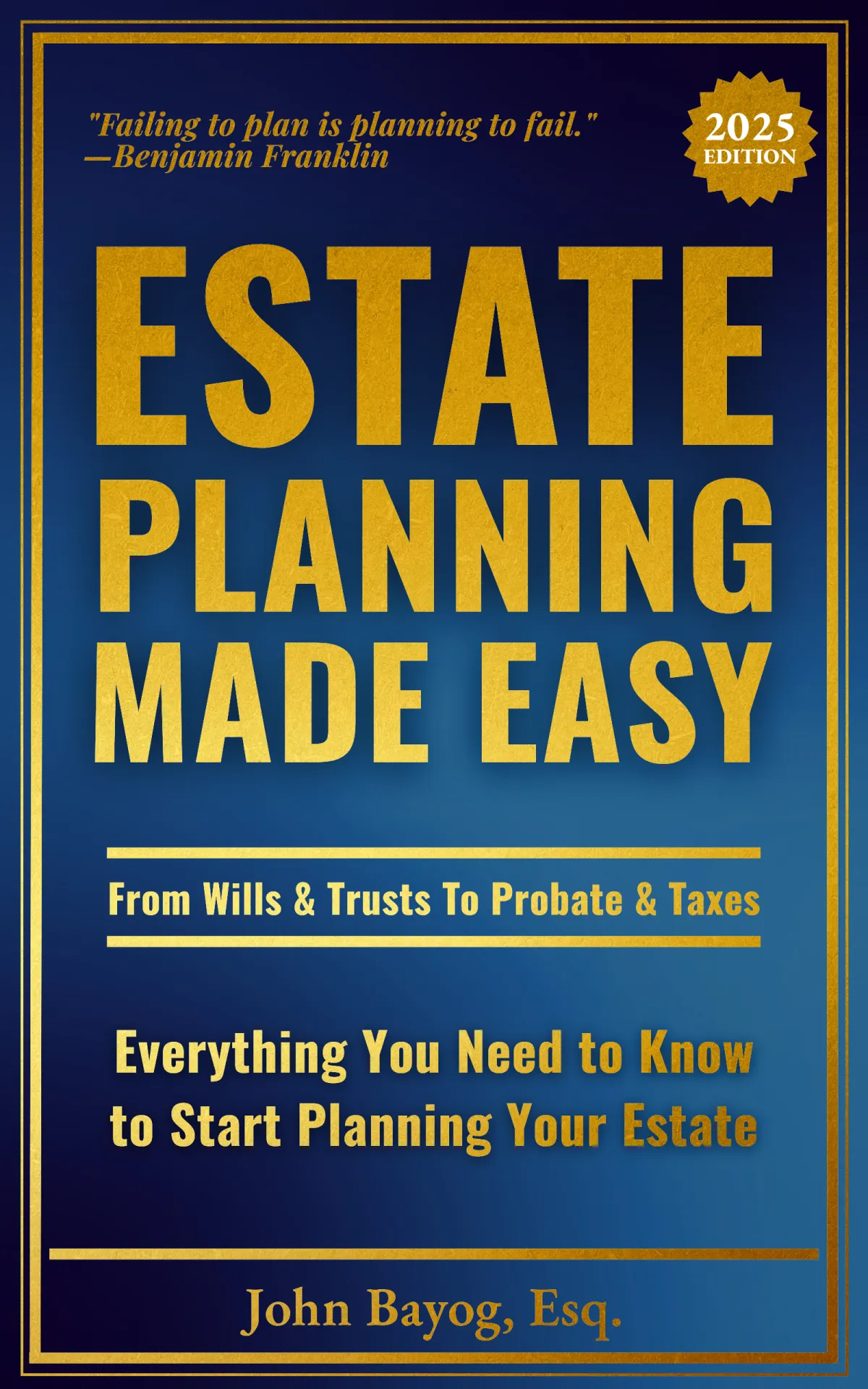
ESTATE PLANNING MADE EASY

Free eBook by John Roger Bayog, Esq.
Confused about whether you need a will, a trust, or both? You’re not alone. This free, easy-to-read guide explains the differences—and what you actually need to protect your family, your assets, and your peace of mind.
What You’ll Learn:
The key differences between wills and trusts
How to avoid probate and why it matters
Why a trust can give your family privacy, speed, and control
How to name guardians for your children the right way
What happens if you die without a plan in Massachusetts
How to choose the right documents for your life and your goals
Get Your Free Estate Planning eBook
Fill out the form below and I’ll email you your free copy of “Estate Planning Made Easy”
Not Sure What You Need? That’s What We’re Here For.
Estate planning is not one-size-fits-all. We'll walk you through your options and design a plan tailored to your situation.
Serving all of Eastern Massachusetts — Zoom, phone, and in-person options available.





FAQS
What is estate planning and why is it important?
Estate planning is the process of organizing and managing your assets and affairs to ensure they are distributed according to your wishes after your death. It includes creating documents such as wills, trusts, powers of attorney, and healthcare directives. Estate planning is important because it provides peace of mind, protects your loved ones, minimizes legal complications, and ensures your wishes are honored.
What is the difference between a will and a trust?
A will is a legal document that outlines how your assets will be distributed after your death and can appoint guardians for minor children. A trust, on the other hand, is a legal entity that holds and manages assets on behalf of your beneficiaries during your lifetime and after your death. Trusts can help avoid probate, provide tax benefits, and offer greater control over how and when your assets are distributed.
When should I update my estate plan?
You should review and update your estate plan regularly, especially after major life events such as marriage, divorce, the birth of a child, the death of a beneficiary, or significant changes in your financial situation. Keeping your estate plan current ensures that it accurately reflects your wishes and provides the necessary protection for your assets and loved ones.
What areas do you serve?
Now serving all of Essex, Middlesex, Suffolk, Norfolk, and Bristol counties including
Amesbury, Andover, Beverly, Boxford, Danvers, Essex, Georgetown, Gloucester, Groveland, Hamilton, Haverhill, Ipswich, Lawrence, Lynn, Lynnfield, Manchester-by-the-Sea, Marblehead, Merrimac, Middleton, Nahant, Newbury, Newburyport, North Andover, Peabody, Rockport, Rowley, Salem, Salisbury, Saugus, Swampscott, Topsfield, Wenham, and West Newbury.
Hours:
Monday – Friday
9:00 AM - 5:00 PM
Hours:
Monday – Friday
9:00 AM - 5:00 PM